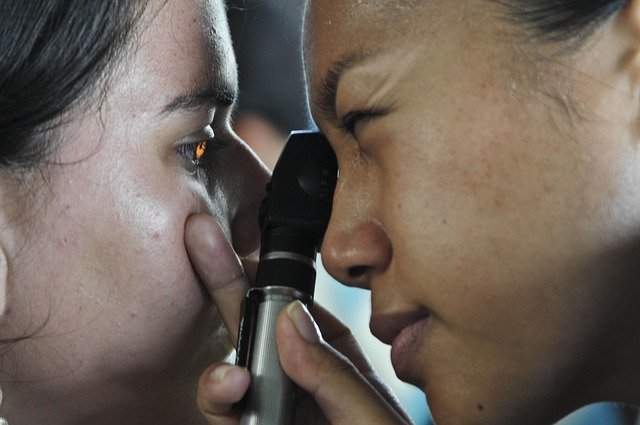Understanding Vision Correction: Costs, Benefits, and Risks
Vision correction surgery has transformed how millions of people see the world, offering a potential alternative to glasses and contact lenses. This advanced procedure reshapes the cornea using laser technology, aiming to correct refractive errors such as myopia, hyperopia, and astigmatism. Understanding the financial investment, health benefits, and medical limitations is essential for anyone considering this popular elective procedure.

Laser vision correction has become one of the most widely performed elective surgical procedures globally. The technique involves creating a thin flap in the cornea, then using an excimer laser to reshape the underlying tissue, thereby correcting how light enters the eye. While many patients achieve improved vision without corrective lenses, the decision to undergo this procedure requires careful consideration of costs, potential advantages, and medical suitability.
What Are Typical Lasik Eye Surgery Prices?
The financial aspect of laser vision correction varies considerably depending on several factors, including the technology used, the surgeon’s experience, the clinic’s location, and whether both eyes require treatment. In the United Kingdom, prices typically range from £1,200 to £3,000 per eye, though some premium procedures using the latest wavefront or bladeless technology may cost more.
Several elements influence the final price. Custom or wavefront-guided treatments, which map the unique irregularities of your eye, generally cost more than standard procedures. The surgeon’s expertise and the clinic’s reputation also affect pricing, as do aftercare services and enhancement procedures if needed. Many providers offer financing options or payment plans to make the procedure more accessible.
Prices, rates, or cost estimates mentioned in this article are based on the latest available information but may change over time. Independent research is advised before making financial decisions.
What Are the Key Lasik Eye Surgery Benefits?
The advantages of laser vision correction extend beyond simply eliminating the need for glasses or contact lenses. Most patients experience rapid visual improvement, often noticing clearer vision within 24 hours of the procedure. The surgery itself is relatively quick, typically taking 10 to 15 minutes per eye, and is performed under local anaesthetic eye drops, minimizing discomfort.
Long-term convenience represents a significant benefit. Many patients find freedom from the daily routine of inserting contact lenses or searching for misplaced glasses. This can be particularly valuable for active individuals, athletes, or those whose professions make wearing corrective eyewear challenging. Additionally, while there are upfront costs, the procedure may prove economical over time when compared to the ongoing expense of purchasing glasses, contact lenses, and cleaning solutions over decades.
Most patients achieve 20/20 vision or better following treatment, though individual results vary based on the severity of the initial refractive error and other factors. The procedure boasts high satisfaction rates, with studies indicating that over 95 percent of patients are pleased with their outcomes. Recovery is typically swift, with many people returning to normal activities within a few days.
Understanding Surgery Eye Contraindications
Despite its benefits, laser vision correction is not suitable for everyone. Certain medical conditions and eye characteristics make the procedure inadvisable or increase the risk of complications. Age is one consideration; candidates should generally be at least 18 years old, with a stable prescription for at least one year. Pregnant or nursing women should postpone the surgery due to hormonal fluctuations that can affect vision.
Eye health conditions that may disqualify candidates include keratoconus (a progressive thinning of the cornea), severe dry eye syndrome, glaucoma, cataracts, or corneal diseases. Individuals with very thin corneas may lack sufficient tissue for safe reshaping. Autoimmune disorders such as rheumatoid arthritis or lupus can impair healing, as can uncontrolled diabetes.
Certain medications also present concerns. Immunosuppressants or drugs that affect wound healing may increase complication risks. Additionally, individuals with unrealistic expectations or those seeking perfect vision without understanding the procedure’s limitations may not be ideal candidates. A thorough pre-operative assessment with a qualified ophthalmologist is essential to determine suitability.
Comparing Vision Correction Providers and Costs
When researching laser vision correction options, comparing providers helps ensure you receive quality care at a fair price. The following table presents examples of established providers in the United Kingdom, though this is not exhaustive and individual circumstances will affect final costs.
| Provider | Services Offered | Cost Estimation (Per Eye) |
|---|---|---|
| Optical Express | Standard and custom treatments, bladeless options | £1,395 - £2,500 |
| Optimax | Wavefront-guided procedures, lifetime care | £1,200 - £2,200 |
| Ultralase | Standard and advanced procedures | £1,500 - £2,800 |
| Accuvision | Custom bladeless treatments | £1,800 - £3,000 |
Prices, rates, or cost estimates mentioned in this article are based on the latest available information but may change over time. Independent research is advised before making financial decisions.
When evaluating providers, consider factors beyond price alone. Surgeon qualifications, technology used, pre-operative assessments, aftercare provisions, and enhancement policies all contribute to the overall value. Reading patient reviews and scheduling consultations with multiple clinics can help you make an informed decision.
Preparing for Your Consultation
A comprehensive consultation is the first step toward determining whether laser vision correction is right for you. During this appointment, your eye care professional will conduct various tests to measure corneal thickness, map corneal topography, assess tear production, and evaluate your overall eye health. Be prepared to discuss your medical history, current medications, and lifestyle factors that might influence your candidacy.
Bring a list of questions to your consultation. Inquire about the surgeon’s experience, the specific technology they use, potential risks and complications, realistic outcome expectations, and what the recovery process entails. Understanding the enhancement policy is also important, as some patients require additional procedures to achieve optimal results.
Most clinics offer a free or low-cost initial consultation, making it feasible to explore your options without significant financial commitment. Use this opportunity to assess not only the medical aspects but also your comfort level with the provider and their staff.
Conclusion
Laser vision correction represents a significant decision that combines medical, financial, and lifestyle considerations. While the procedure offers substantial benefits for suitable candidates, understanding the costs involved, recognizing the advantages, and acknowledging the contraindications ensures you approach this choice with realistic expectations. Consulting with qualified ophthalmologists, researching providers thoroughly, and considering your individual circumstances will help you determine whether this procedure aligns with your vision correction goals.
This article is for informational purposes only and should not be considered medical advice. Please consult a qualified healthcare professional for personalized guidance and treatment.



